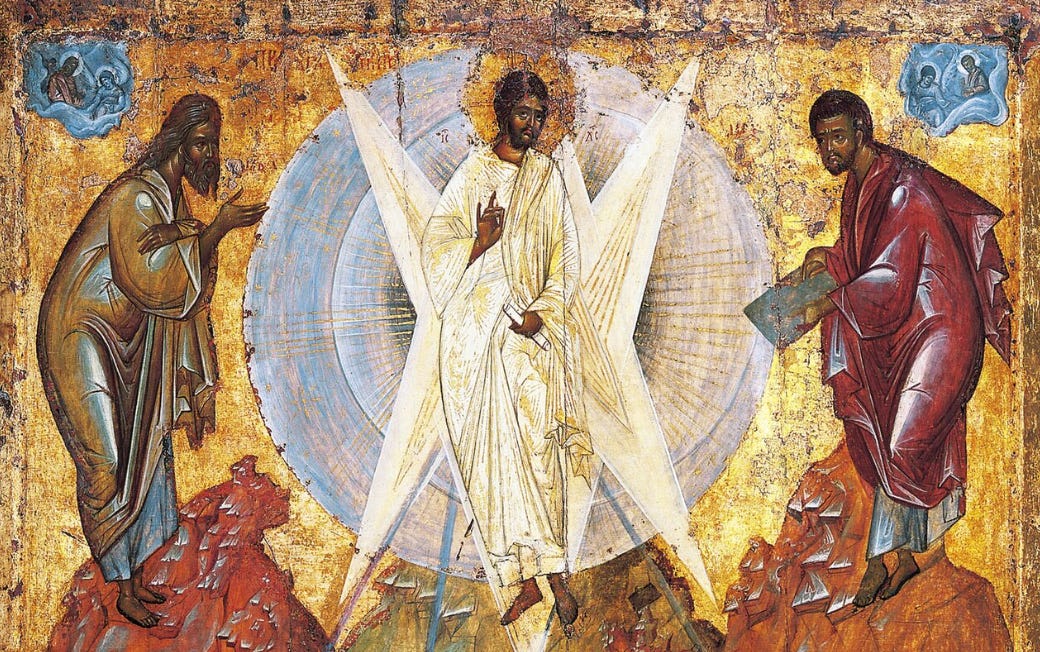Pillar subscribers can listen to JD read this Pillar Post here: The Pillar TL;DR
Hey everybody,
I’m back from a week at the beach, and you’re reading The Tuesday Pillar Post.
After a very good vacation, I am ready to get back to work, and I’ve got a bunch of story ideas to get our newsroom and freelancers working on. For myself, I’m expecting to spend much of this week working on a couple of important stories that have been pending on my desk, which matter very much, and which I haven’t quite had time for.
But to tell you the truth, I’m not sure what you should expect from this newsletter. Thanks to a hurricane, our flights were a little bit wonky yesterday, and I think it was around 2:30 a.m. when I finally made it to bed. But I’ll give you everything I’ve got this morning — and I should mention, Pillar readers, that I sincerely missed you while on vacation.
I’ve grown accustomed to hearing from some of you just about every day. With my phone mostly off, I missed that. In most cases, at least.
I’d be remiss not to mention that today is the feast of the Transfiguration — one of the most powerful and mysterious moments in the life of Jesus Christ.
I like a lot something Benedict XVI wrote about the Lord’s transfiguration, namely, that the episode is “a prayer event.”
“It displays visibly what happens when Jesus talks with his father: the profound interpenetration of his being with God, which then becomes pure light.”
Why do I like this? Because in the Resurrection, and our baptism, we’re invited into the inner life of the Trinity.
At the time it happened, the apostles witnessed Jesus’ face as it “shone like the sun.” It must have been incredible. But Benedict is making the point that we’re invited to be transfigured too, into the same light.
That’s what holiness is — a kind of stepping into lumen de Lumine, light from light.
“Lead, Kindly Light, amidst th'encircling gloom,
Lead Thou me on!”
The news
Of course, news of Henning’s appointment seeped out before it was announced by the Vatican Monday morning.
At The Pillar, we had reports of Henning’s appointment coming to us on Saturday, from a couple of stateside sources. But we wanted to confirm it in Rome — we like to be doubly sure about stuff like this — and, before that happened, the news was published by Rocco Palmo, the Philadelphia figure who once ran a blog which traded in scooping episcopal appointments with regularity. For a while there, Rocco was the Harvey Levin of the American ecclesial scene, in fact.
The blog hasn’t been updated since 2021, but Palmo is still active on social media, and occasionally shows flashes of his one-time prowess at episcopal prognostication. His breaking Boston bulletin was one such occasion — so much so that a friend texted me to say that with Rocco reporting a major appointment, he felt like it was a blast from another era — and he was reminded that, as with a lot of us, it was Palmo’s “Whispers in the Loggia” which first got him reading about Church affairs.
Actually, Ed’s well-sourced analysis is important, because the politics of the Boston appointment are kind of a microcosm for the political landscape of American episcopal appointments right now — which means that if you read this, you’ll learn about a lot more than just what’s happening in Boston.
Who are the others? Read all about it.
—
Giuseppe Pignatone, the chief judge of the Vatican City’s criminal court — the guy who presided over the Becciu et al trial — is under criminal investigation in Sicily.
The judge is suspected of dropping or covering up a mafia-related investigation in the 1990s.
Pignatone has declared his innocence. But of course, innocent or not, it seems likely that figures convicted in the Vatican City finance trial will soon raise objections about a trial overseen by a judge now accused of corruption.
As the world turns, my friends. Like sands through the hourglass, these are the days of our lives.
Here’s the latest on the Vatican’s criminal soap opera.
—
In Poland, Bishop Wojciech Osial, chair of the Polish episcopal conference’s education committee, is pushing back on a move to curb state-funded religion classes in the country’s schools.
Here’s where things stand, and why it matters.
—
You might not know this, but Queen Isabella (of Ferdinand and Isabella fame) has a cause for canonization underway — one of the most controversial causes for canonization in the Spanish-speaking world.
In Spain, Isabella and Ferdinand are referred to in common parlance as “los Reyes Católicos” — because their piety and devout practice of the faith is well-known, more than 500 years after their deaths.
Critics argue that Isabella’s role in the expulsion of Jews and Muslims and the mistreatment of the indigenous people in the Americas exclude the possibility of her sainthood, especially in today's context.
Still, her cause, which began in the 1950s, remains open — and Pope Francis is reportedly one of its champions.
All of this is complicated. So The Pillar talked with Archbishop Luis Argüello, president of the Spanish bishops’ conference, and leader of the diocese where Isabella’s cause was opened decades ago.
Read a very interesting conversation, right here.
Want to learn an ancient language? You don't need a PhD to read Augustine's Confessions in Latin or the New Testament in Greek. In our online classes, we are reading and speaking Latin, Ancient Greek, Biblical Hebrew, and Old English.
The country’s bishops are among those pushing back on Maduro, with most urging that election results be published, and some calling Maduro a fraud.
—
Unless Maduro is toppled, the fragile peace he’s negotiated with the Church in recent years is probably over — and Catholics in Venezuela could soon be facing a full-blown persecution.
—
While I was on vacation, The Pillar published a major story last week, detailing an investigation into finances at the Dicastery of the Doctrine of the Faith during the tenure of Cardinal Gerhard Müller as prefect.
The report explained that dicastery cash had been misappropriated at the DDF, with several hundred thousand reportedly deposited into Müller’s personal bank account. It also explained that investigators did not believe Müller was trying to benefit personally from the DDF’s cash — but that its mismanagement seems to have contributed to the pope’s decision not to renew him as head of the DDF.
Müller did not respond to our questions before that report was published. But after its publication, the cardinal issued several statements, accusing The Pillar of “violat[ing] the Eighth Commandment,” and of publishing “cheap investigative literature” in order to “build a financial scandal.”
The cardinal mostly did not address the specific issues flagged in The Pillar’s reporting, even while he said that he wanted to “unravel every aspect of this alleged mystery, shedding light in total transparency and honesty on what happened.”
Well, as the saying goes, I guess: we report, you decide. Discerning readers can evaluate The Pillar’s coverage of all this, and make up their own minds about the DDF. It’s not our intention to tell you what to think.
But there are two issues about the cardinal’s statement I’d like to address, if I may.
The first is the cardinal’s suggestion that The Pillar used “reputational damage as a means of [advancing] their Church politics.”
That’s a bit of a curious accusation to me, because, while Ed and I don’t have teams, we do have theological perspectives and leanings, like anyone else. And If Müller’s theology is basically the Benedict XVI “hermeneutic of continuity” and “reform of the reform” theological viewpoint which I believe it is, well, I suspect most Pillar readers would perceive more theological alignment than difference between the cardinal and ourselves.
The problem is that we don’t do journalism to advance Church politics — we do it because we love the Church like a mother, we think good governance matters, and we think chasing after the truth, and bringing it into the light, is a service to the Kingdom — no matter where that chase leads.
Look — we’ve lost friends over that, we’ve lost sources over that, we lost a lot of paying subscribers over that (including a pretty good number of canceled subscriptions since we began publishing about Müller.) But it’s what we do, even when it runs counter to the agenda people think we should have.
We’d be a lot more institutionally secure (and a lot more certain about how to pay Catholic school tuition) if we reliably told a big group of people exactly what they want to hear. But we just can’t do it. We don’t have the stomach for it. And we hate, viscerally, the corrosive effect of media partisanship on the Church’s life.
So on that front, I’d say the cardinal misunderstands our mission. But if you understand it, and you want to make up for the post-Müller cancellations we’ve seen, please consider subscribing. Thank you:
The second thing is that Müller and others, have repeatedly made the suggestion that someone who opposes Cardinal Müller must have just have handed The Pillar this story, and that Ed and I, like a couple of rubes, were just sitting around waiting for it to pop up in our inboxes, whereupon we published it.
That couldn’t be further from the truth.
The truth is that we first started investigating this story three years ago, when we heard rumors that the DDF had been poorly managed, administratively. We started looking into it with no idea whether that was true or not.
And over three years, we’ve had dinners, and coffees, and drinks, and conversations, with people who were involved at the DDF, or in the investigation. Gradually — when they realized we weren’t playing politics — people felt they could trust us enough to tell us the story, often in dribs and drabs, and then more directly.
It took us three years to get to the point where we had it from enough independent sources, who couldn’t possibly be collaborating with each other, before we HAD the story.
Only then did we start writing it, and then going back to sources, or finding new ones, to fill in holes or confirm narratives.
That’s how our job works, and we like doing it. So the suggestion that somebody just emailed us a thing, or that the timing is meant to coincide with a future conclave, or anything like that, is not realistic. We published the story when we had it. We think it’s a story that matters. We’re glad the cardinal has said what he wants to say about it. We’re mostly not rubes.
I mean, I’m certainly an unsophisticate at a fancy dinner or with important people, or anywhere in public really. But we do know our jobs.
Being Max’s dad
If you would, spare a prayer this morning for my son Max. He’s with Mrs. Flynn, getting some chest x-rays.
Readers of The Pillar know that Max, our oldest, has Down syndrome and a bunch of other neurological difficulties, which make life hard for him. He also has some health problems, and he takes a pretty good spectrum of medications to deal with all that — plus some medications to help counter the effects of other medications. Some of that impacts the strength of his immune system.
We’ve been working for years to help him be stronger — more self-possessed, and physically more capable. But Max is, in many ways, vulnerable.
Anyway, just as we left for our vacation, Max picked up a bug — a respiratory infection — that had been floating around our house, and our extended family. It hit him hard. He spent the first few days of the trip trying to muster energy for the beach, or to spend time with our friends, but he faded quickly.
Soon, he was spending whole days in bed, and whole nights up coughing. When he got pale and his breathing got labored, we took him to the ER. He had pneumonia. He needed antibiotics and rest.
Kate and I took turns, with one of us in the room with him, and the other parent taking Pia and Davey to the beach, or to eat, or to mini golf. Those kids were such great sports, but Max spent basically eight days in bed, asleep for most of it.
Occasionally, he rallied, and then spent a little time doing something fun, before wilting again.
There in the room, I did get to watch more Olympics than I’d expected, which I’ll mention below.
Maxie, though, got worse. He just didn’t recover his strength. When it was time to go home, it was clear he wouldn’t be up to walking through airports — so we put him in a wheelchair.
That worked fine, until a delay between our first and second flight, which kept us in the Nashville airport for several hours. Max was exhausted. He just wanted to sleep. He wailed in the wheelchair, and as we finally boarded the plane, and on the flight to Denver.
Of course, people stared at us as I pushed him through the airport, Max seated in a wheelchair, wailing, or having coughing fits, and looking for all the world as pale as a Dickensian orphan.
Some people stared with a kind of pity in their eyes, others looked at us scornfully. I suppose they were upset that Max’s discontent had violated the peaceful sanctum of a Southern airport during hurricane delays.
On the flight, I sat in a row with Pia and Davey, while Kate sat ahead of us, cradling Max. When I asked the flight attendant to bring my wife a margarita, she told me there was no charge. When an airline is giving you free booze, you know you’ve got people’s sympathy.
At the Denver airport, as I pushed Max in his wheelchair, and he whimpered in discomfort, I wondered if God was giving me a glimpse of our future together — Max, and Kate, and me.
Maxie won’t have the kind of independence other kids have — even other kids with Down syndrome. Max’s brain doesn’t work like ours. And I don’t know what to expect of his health, either. I wondered, pushing him towards the baggage claim, if maybe this will be the kind of care he eventually needs all the time.
Mostly as people looked at him, I hoped they saw my son for all that he is — for a sweet boy, and a good brother, and a movie buff, and a talented mimic with a great memory, and as a child of God, made in His image and likeness, as much as anyone charging ahead full speed towards the luggage carousel.
They probably didn’t see him for all that. Probably it takes the people who know him and love him the most to see him that way. At least that’s what I thought last night. That, like all of us, Max’s deepest desire is to be known, and to be loved — to be cherished, and even to be respected for who he is.
I realized last night — perhaps for the first time — that people who don’t take the time will only see him as the sum of his disability, as a caricature, as a stereotype — one facet of the boy I know and love.
The love Max deserves won’t come from a broad spectrum of people who see instantly how great he is. It will come from the people who know him best. People who’ve been given the gift of loving him.
As I pushed Max across the airport sometime towards midnight, and as he nodded off in the chair, I asked the Lord if we’ll be enough to love him well. Right now, I’m asking for the grace to be a good dad. I really need it.
LA Gold
The problems of the Olympic Games did not escape me on our holiday by the sea. I told you the opening ceremonies would be weird, and I was proven right. I did not quite expect the debate over pugilism and gender, though perhaps we should have predicted exactly how that would play out.
But despite the concerns, I’ve watched a fair amount of the Olympics in the past week, due mostly to my quarantine with Max. Of course, the best events are the purest — the 100m dash, the pole vault (even the jump of this poor man), the sharpshooting, the Mario-Kart-like kayak cross, which is just insanity.
There is one sport I dare not watch, for sake of keeping custody over my eyes. You see, while the idea of the sport seems interesting enough, my bashful sense of modesty had me change the channel during beach volleyball, in which women competitors are expected to don tiny bikini bottoms.
Men don’t wear that to play beach volleyball, and it seems to me that women have been mostly required to — (except for those with religious/cultural objections) — for the sake of turning their sport into some kind of Maxim-esque exhibit for the lecherous voyeurs who might tune in and give the game a ratings boost. That’s proven by the fact that when Paris 2024 said leggings were ok, weirdos on the internet started complaining.
So, while I didn’t watch much beach volleyball, I did tune in to 3x3 basketball.
I think I like this sport. Maybe. But mostly I like what it represents.
At first, I thought of it as the Intercontinental Championship of Olympic roundball — not as prestigious as the real thing, but a good chance for some up-and-comers to get a winner under their belts, and go home with a medal.
But it’s not that. You don’t see young NBA players showing up to run the 3x3 game like an And1 video, as a tryout for the big boys’ team, or an audition for a bigger contract.
And I’ve come to think that the rules for 3x3 are purposely designed to make it a basketball contest mostly devoid of Americans. See, to be eligible for Olympic 3x3 play, players have got to put in the time going to a lot of tournaments, acquiring a lot of points, and generally proving themselves in the confines FIBA has established. The American Big3 League, entertaining but mostly the domain of NBA has-beens and never-will-bes, doesn’t count.
The rules mean that a young Bronny James, for example, can’t swoop in for Team USA, play hard for a couple of weeks, and win gold, just like Dad. Instead, a good player would have to basically forgo college, NIL money, or NBA money even, to make it to the Intercontinental Championships, so to speak. This is not a sport for NBA players, or prospects.
This leaves the game to players with strong national development programs, willing to invest a lot of time in a basketball stage not dominated by LeBron, et al, on the big court.
Americans, basically, need not apply.
I love that FIBA created a basketball stage for the rest of the world. I’m glad they have that.
Of course, none of us in America cares who wins. We can’t name a single star. We’ll forget about the game for four years — at least, until we figure out how to dominate it.
My plan is to get recent or nearly-retired NBA players onto the tournament circuit. I think Melo, JR Smith, and Dwight Howard can have Olympic gold at LA 2028.
USA. USA. USA.
Please be assured of our prayers. And please pray for us. We need it.
Yours in Christ,
JD Flynn
editor-in-chief
The Pillar











